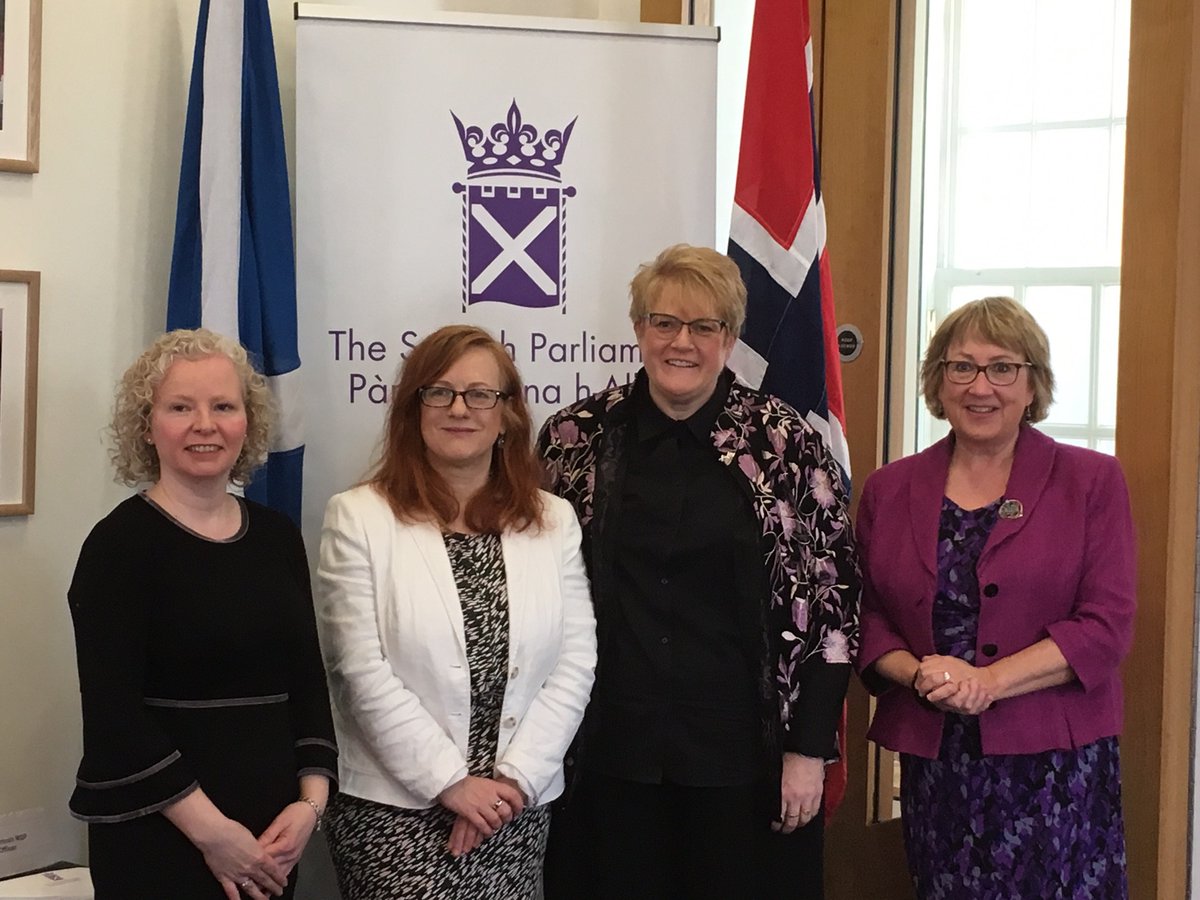Culture, Tourism, Europe and External Affairs Committee
Culture, Tourism, Europe and External Affairs Committee: Annual Report 2018-19
Introduction
This report covers the work of the Culture, Tourism, Europe and External Affairs Committee during the parliamentary year from 12 May 2018 to 11 May 2019.
On 6 September 2018 the name and remit of the Committee changed, reflecting a change in the portfolio of the Cabinet Secretary for Culture, Tourism and External Affairs to become the Culture, Tourism, Europe and External Affairs Committee instead of the Culture, Tourism, Europe and External Relations Committee.
Meetings
During the reporting period the Committee met 34 times.
1 held wholly in public
2 held wholly in private
31 held partly in private
Business tends to be taken in private when reports and evidence are being considered. In this parliamentary year, the Committee met for a total of 4,034 minutes. Of these, 3,143 minutes (78%) were in public.
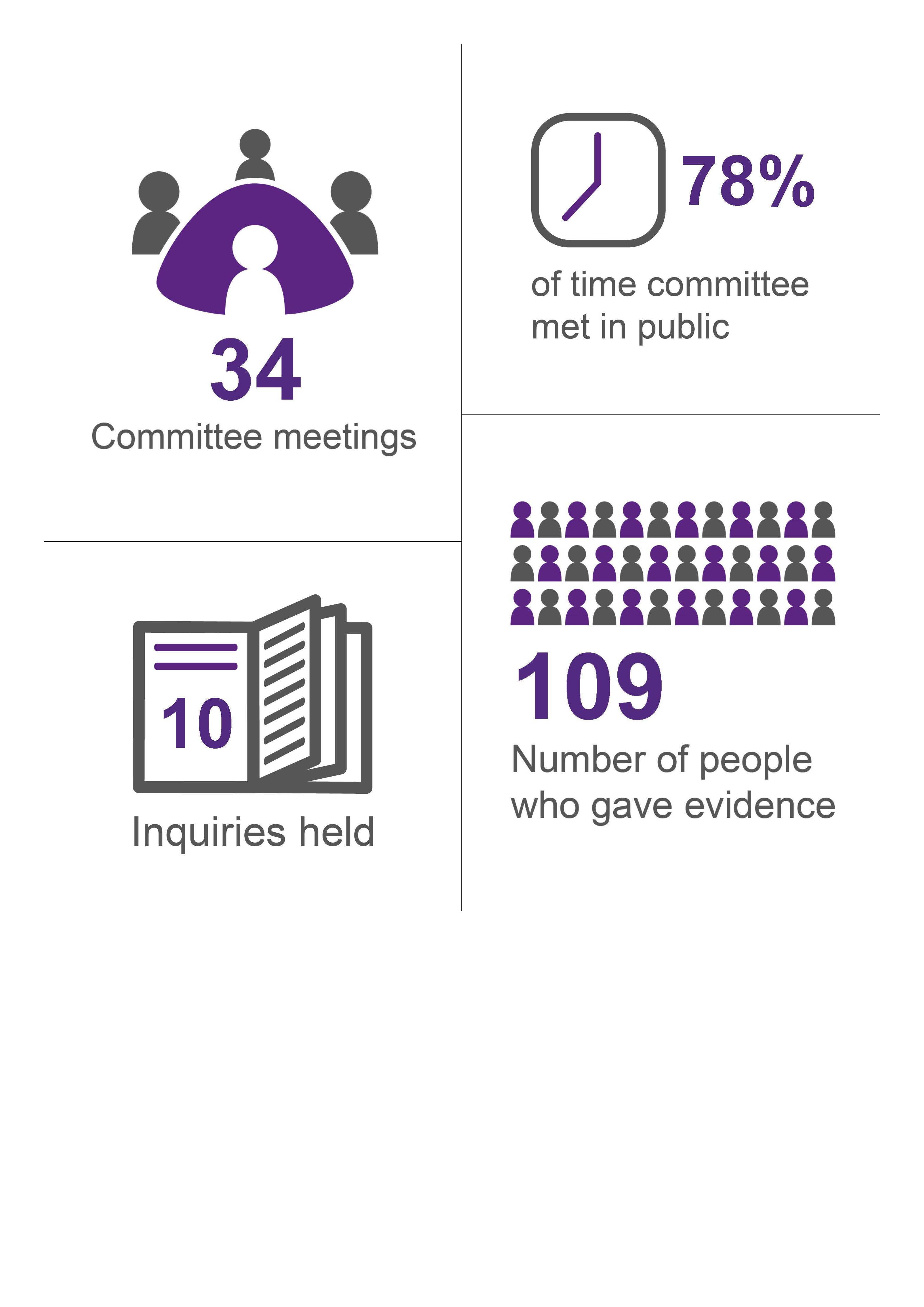
Membership changes
There have been changes in Committee membership this parliamentary year as follows:
Jackson Carlaw (Conservative) 12 May 2018 - 17 May 2018
Jackson Carlaw was replaced by Jamie Greene.
Rachael Hamilton (Conservative) 12 May 2018 - 17 May 2018
Rachael Hamilton was replaced by Alexander Stewart.
Mairi Gougeon (SNP) 12 May 2018 - 27 June 2018
Mairi Gougeon was replaced by Annabelle Ewing.
Richard Lochhead (SNP) 12 May 2018 - 4 September 2018
Richard Lochhead was replaced by Kenneth Gibson.
Inquiries
Screen Sector
The Committee continued its work on the Screen Sector Inquiry which was launched in Autumn 2017 and published its report, Making Scotland a Screen Leader on 28 June 2018.
The report recommended that Scotland have a stand-alone autonomous screen agency with tools to support Scotland to become a global screen leader; that an urgent need for increased studio space is addressed; that regulations be tightened and that the definition of a Scottish production be improved.
The Committee has continued to scrutinise the launch of Screen Scotland in evidence sessions with Creative Scotland on 1 November 2018 and 2 May 2019.
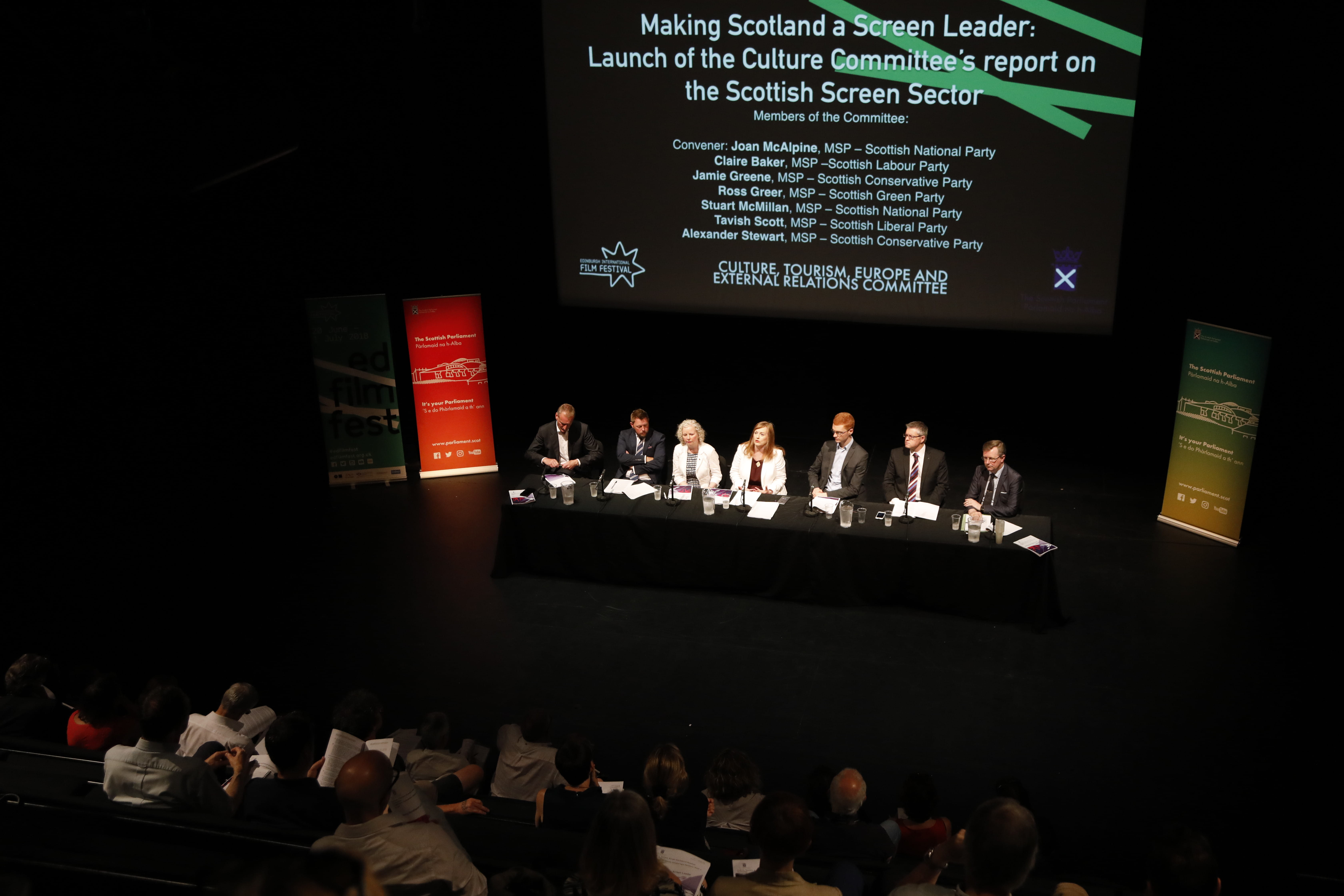
STV Strategic Review
The Committee took evidence from the Chief Executive and Director of Channels at STV when scrutinising the strategic review of STV. The Committee also heard from Ofcom, the Broadcasting, Entertainment, Communications and Theatre Union and the National Union of Journalists.
The Committee wrote to the Chief Executive of STV on 22 August 2018 urging it to engage meaningfully with its staff on the strategic review. The Committee undertook to continue monitoring the strategic review’s implementation.
Creative Scotland - Regular Funding 2018-21
After consideration of the more than fifty submissions received in its inquiry into Creative Scotland – Regular Funding 2018-21, the Committee wrote to Creative Scotland outlining its findings.
The Committee raised several issues about the governance and administration of the Creative Scotland regular funding round. These issues included that-
Creative Scotland’s handling of the regular funding decision making process in relation to touring theatre and dance companies was well below the standards of a non-departmental public body.
Strategic issues were not identified earlier and this failure to recognise and address such issues was detrimental to a significant element of the culture sector.
Concerns were raised that Creative Scotland has not responded to accessibility issues raised by stakeholders.
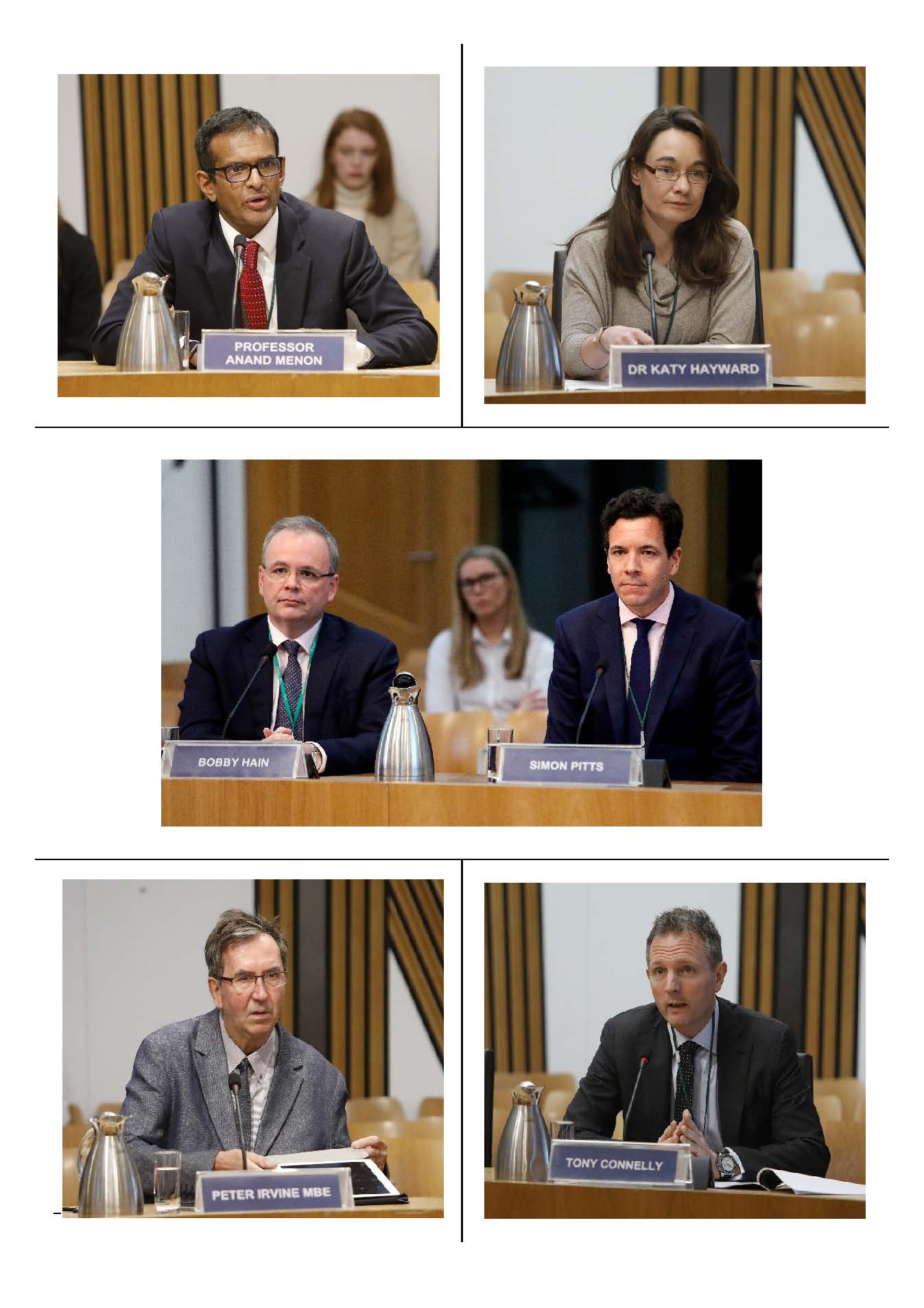
Article 50 Negotiations
The Committee has given considerable time in Session 5 to scrutinising the withdrawal of the UK from the European Union and the implications of that process for Scotland.
During this parliamentary year, the Committee has continued to scrutinise various aspects of the Article 50 negotiations, including:
The progress of the Article 50 negotiations process;
The economic consequences of a No-Deal Brexit;
The preparedness of business and government for the possible outcomes of the Article 50 process;
The negotiation of new international agreements and the implications for Scotland; and
The future of Inter-Institutional relations and the role of devolved institutions post-Brexit.
Across the year, the Committee has taken evidence from the Cabinet Secretary for Government Business and Constitutional Relations, Michael Russell MSP, as well as Rt Hon David Lidington MP, Minister for the Cabinet Office on Article 50 negotiations.
The Committee has taken evidence from representatives of Scottish Council for Development and Industry; National Farmers Union Scotland; Culture Counts; Universities Scotland; General Medical Council; and Freight Transport Association on preparedness for Brexit.
The Committee has also scrutinised the international agreements that the UK Government has signed, or is seeking to sign, as a consequence of Brexit.
The Committee has been supported in its Inquiry by two Advisers:
Transient Visitor Levy
The Committee took evidence on the Transient Visitor Levy from COSLA and local authority leaders. The Committee also took evidence from representatives of the tourism industry.
The Committee wrote to the Cabinet Secretary for Culture, Tourism and External Affairs, Fiona Hyslop, regarding the outcomes of those evidence sessions and requesting further information on proposed developments.
Scottish Budget 2019-20
The Scottish Parliament's Budget process has changed as a consequence of the devolution of financial powers. The new process seeks to promote greater scrutiny and ensure that Committees have an ability to influence budget discussions before the Scottish Government publishes the Budget Bill.
The Committee conducted evidence sessions with the Cabinet Secretary for Culture, Tourism and External Affairs, Fiona Hyslop MSP, and officials, both before and after the publication of the draft budget for 2019-20. The Committee also took evidence from stakeholders as part of its pre-budget scrutiny.
The Committee wrote to the Cabinet Secretary for Culture, Tourism and External Affairs, Fiona Hyslop MSP setting out its key priorities ahead of the publication of the budget.
Glasgow School of Art
On 15 June 2018 the Grade A Listed Mackintosh building at Glasgow School of Art was destroyed by a fire. The building was in the latter stages of renovation after a previous fire in May 2014.
The Committee conducted an inquiry into the fire risk management in the Mackintosh building prior to the 2014 fire; fire safety during the Mackintosh Building Restoration Project; governance issues; the role of Historic Environment Scotland, and the future of the Mackintosh building.
The Committee’s report The Glasgow School of Art Mackintosh Building – The Loss of a National Treasure was published on 8 March 2019. The Committee recommended that after the conclusion of the Scottish Fire and Rescue Service report on the fire, the Scottish Government should establish a public inquiry with judicial powers into the 2014 and 2018 fires at the Glasgow School of Art. Such an inquiry, the Committee recommended, should also examine the risks posed by fire in historic buildings nationally and the ability of custodians to manage these properties, drawing on the lessons learned from the Glasgow School of Art.
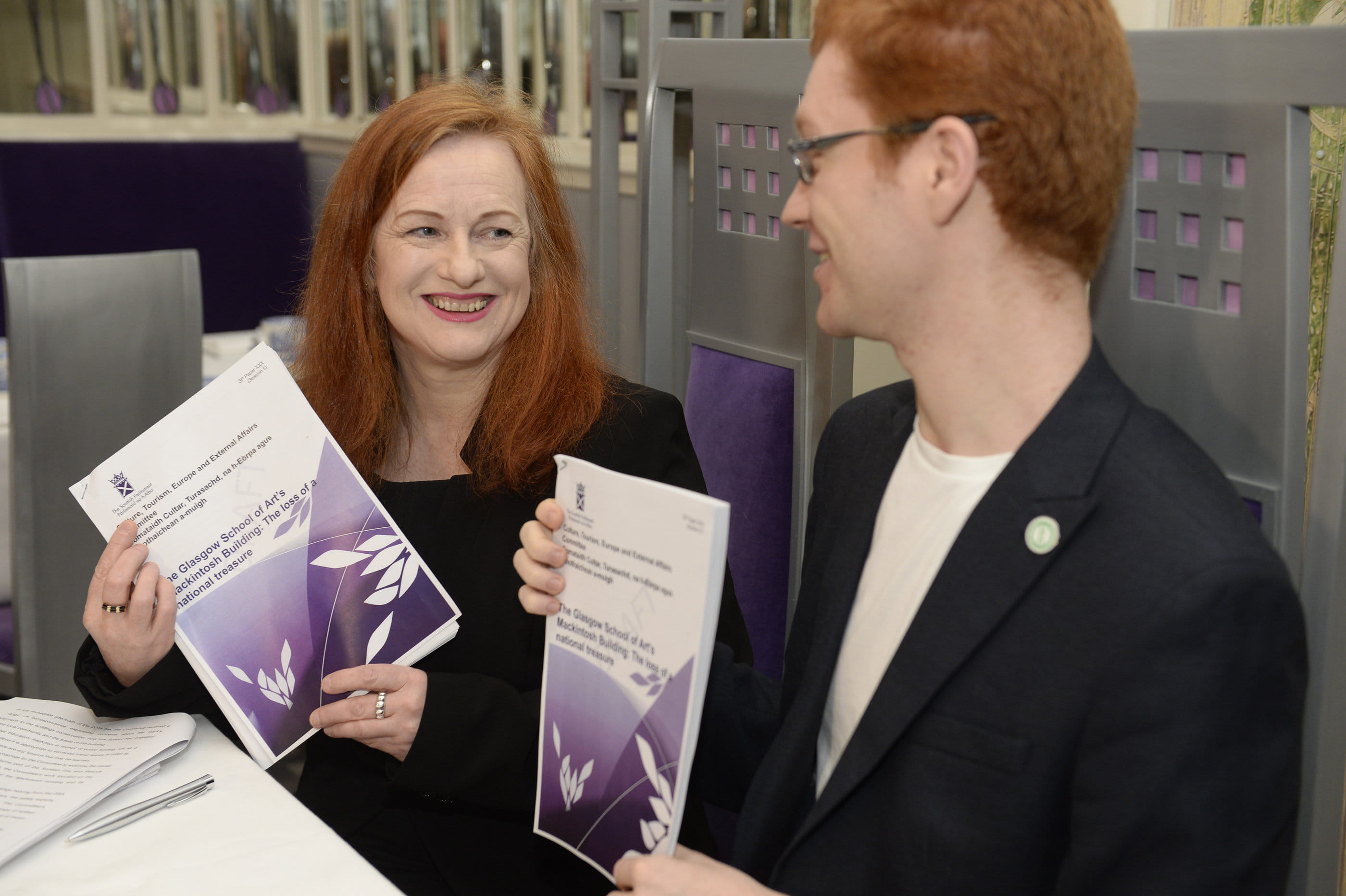
Immigration Inquiry
The Committee continued to work on its Immigration Inquiry. The Committee has been seeking evidence from organisations and individuals in Scotland on how immigration policy can be developed to reflect and respond to Scotland’s demographic and skills needs.
The Committee took evidence from Professor Alan Manning, Chair of the Migration Advisory Committee (MAC), on the MAC’s final report on EEA migrants. The Committee has also considered the UK Government Immigration White Paper “The UK’s future skills-based immigration system”.
Following the evidence session with Professor Manning, the Committee wrote to the Home Secretary, Rt Hon Savid Javid, to raise a number of concerns regarding the MAC’s final report. On 15 February 2019, the Committee received a response from the Home Secretary.
The Committee has subsequently taken evidence from the Chair and Members of the Scottish Government’s Expert Advisory Group on Migration and Population Professor Christina Boswell, Professor Rebecca Kay and Professor David Bell.
The Committee will be continuing its work on this Inquiry in the forthcoming parliamentary year.
BBC
The Committee maintained its standing interest in the work and governance of the BBC. The Committee took evidence from senior BBC officials on its Annual Report and accounts.
Local commercial radio
In February 2019 media company Global announced that it was reducing local programming across the UK on three of its radio brands. The changes would mean that instead of broadcasting 43 hours of locally produced programme, these three radio stations would broadcast 15 hours.
The Committee took evidence on this issue from Global as well as written evidence from the regulator, Ofcom.
Bills
Census (Amendment)(Scotland) Bill
On 2 October, the Scottish Government introduced the Census (Amendment) (Scotland) Bill. The Committee was designated as the lead Committee to scrutinise the Bill.
The Committee published its Stage 1 report on 7 February and the Committee completed Stage 2 scrutiny on the Bill on 2 May.
Engagement and innovation
The Committee has been keen to engage with stakeholders and promote its work widely.
Throughout the parliamentary year, the Committee has tried to engage with a wider audience through its social media channels. The Committee has seen a 10% increase in the number of Twitter followers in the reporting period.
The Committee launched a fortnightly newsletter, in January, which aims to inform recipients about the work of the Committee.
The Committee has welcomed a wide range of international visitors to the Scottish Parliament to discuss a range of issues including Brexit and cultural policy.
Delegations have included:
Norwegian Minister of Culture, Trine Skei Grande, and Norwegian Ambassador, H.E. Wegger Chr. Strømmem;
Quebec Agent General, Mr John Anthony Coleman;
David McAllister MEP, Chair of the Foreign Affairs Committee in the European Parliament; and
Economic Affairs and Energy Committee of the Bundestag
Ambassador of Lithuania, H.E. Renatas Norkus
Icelandic Ambassador, H.E. Stefán Haukur Jóhannesson and Icelandic Parliamentary Foreign Affairs Committee
The Convener, Deputy Convener and Annabelle Ewing MSP meeting with Norwegian Minister of Culture, Trine Skei Grande Images © The Scottish Parliamentary Corporate Body - 2019. Licensed under the Scottish Parliamentary Copyright Licence.
Fact-finding visits
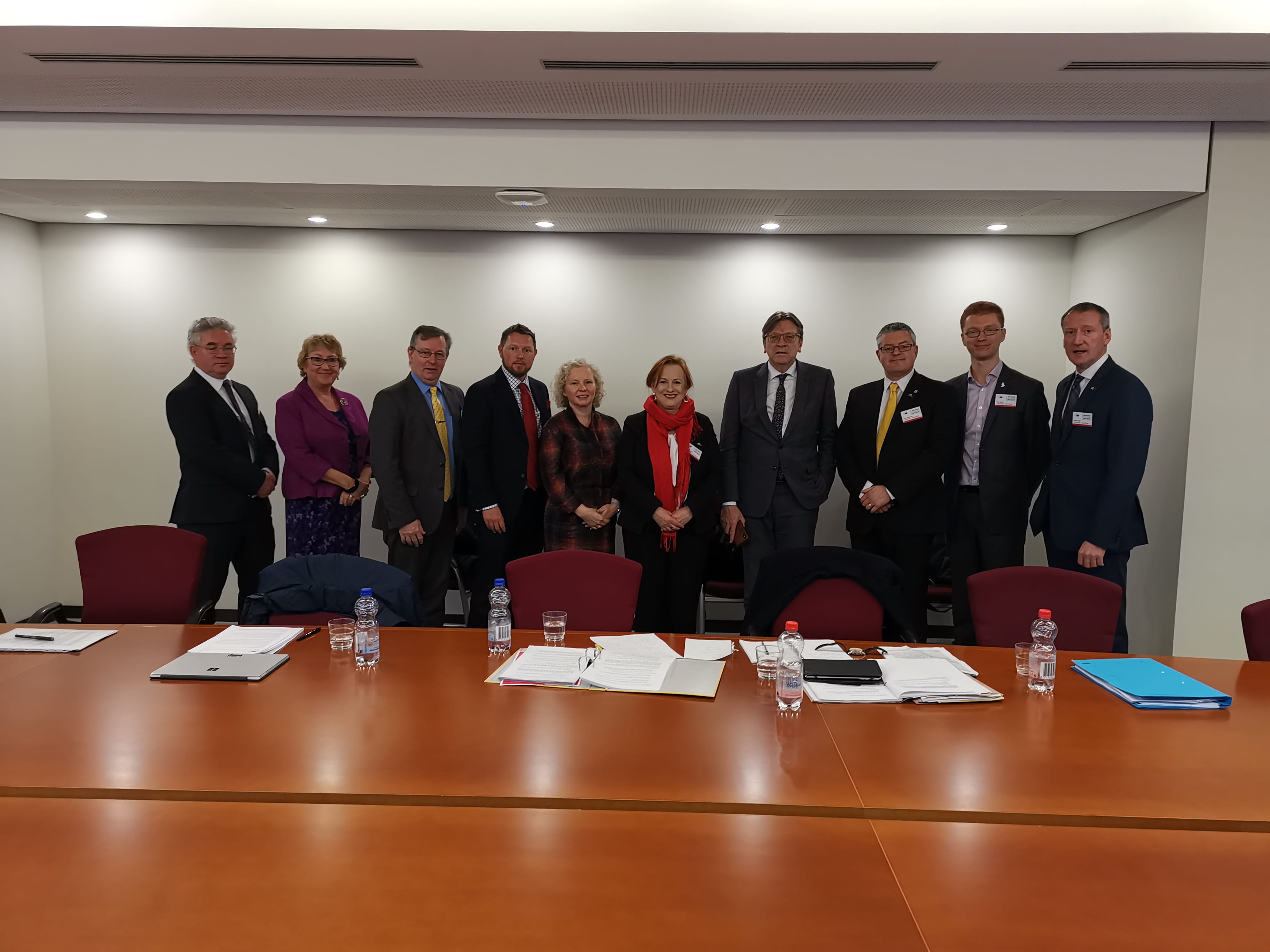
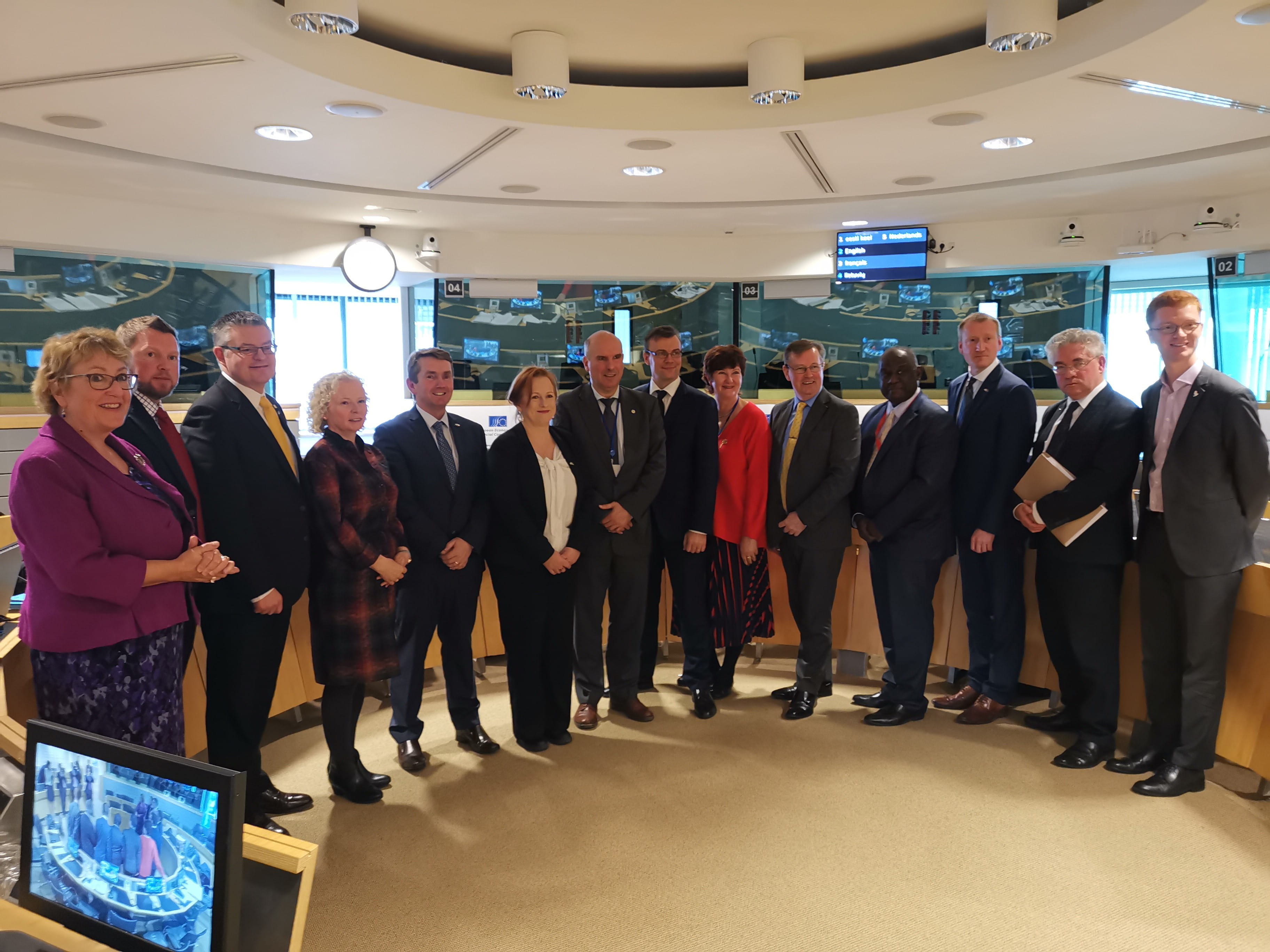
Brussels
In November the Committee undertook a fact-finding visit to Brussels, as part of its Article 50 Inquiry. The primary focus of the visit was to obtain a range of perspectives in Brussels on the Article 50 negotiations. Meetings held in Brussels by the Committee included with MEPs, EU Officials, Members of the Committee of the Regions, as well as officials from the Scottish Government, Scotland Europa, Irish Government and UK Government.
Inter-Parliamentary Forum on Brexit
The Interparliamentary Forum on Brexit brings together senior representatives from Committees scrutinising Brexit-related issues in the Scottish Parliament, National Assembly for Wales, House of Commons and House of Lords. It is intended to provide a forum to discuss the process of the UK’s withdrawal from the European Union, and collective scrutiny of that process in legislatures across the UK.
The Forum met in the House of Commons on 21 June 2018, Cardiff on 25 October 2018, the House of Lords on 17 January 2019 and at the Scottish Parliament on 26 April 2019.
Presidency of the Council of the European Union
The Presidency of the Council of the European Union rotates among the member states every six months. The Presidency is responsible for the functioning of the Council of the European Union. The Presidency also represents the Council in relations with other EU institutions, particularly the Commission and the European Parliament.
The Committee invites the relevant Ambassador to the United Kingdom to give evidence on the priorities of their Presidency.
During parliamentary year 2018-19, the Committee has taken evidence from the Bulgarian Ambassador, H.E. Konstantin Dimitrov, on 7 June 2018; Austrian Ambassador, H.E. Michael Zimmermann, on 8 November 2018; and Romanian Ambassador, H.E. Dan Mihalache, on 21 February 2019.
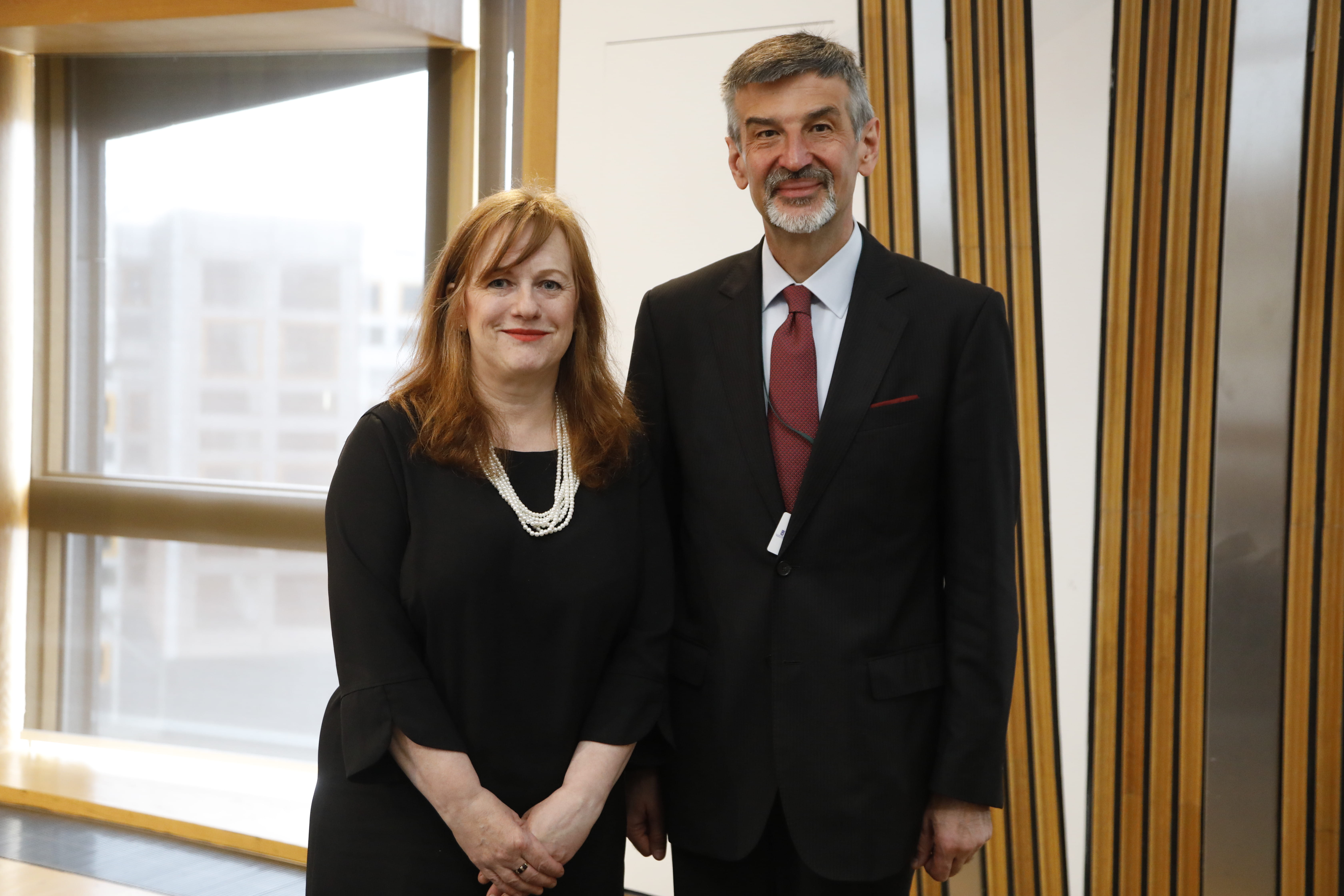
Equalities
The Committee continues to mainstream equalities considerations across its work.
As a result of the Committee’s examination of Scotland’s Screen Sector, the Committee recommended that the industry develop a plan for improving diversity and inclusion within the sector.i
When scrutinising the Census (Amendment) (Scotland) Bill, the Committee considered a wide range of equalities issues.
As part of evidence gathering sessions for its Immigration Inquiry, the Committee scrutinised the potential impact that of an income threshold of £30,000 for Tier 2 migrants.
As part of the Creative Scotland Regular Funding 2018-21 inquiry, evidence was received which highlighted problems with the accessibility of the regular funding application forms. The Committee raised the issue with Creative Scotland, urging the organisation to respond to these concerns and to adopt the Campaign for Plan English guidelines for its forms. An independent report into the process by Wavehill consultants for Creative Scotland found similar evidence and agreed with the Committee that there is “merit in reviewing all application guidance and access support arrangements to ensure that this is compliant with relevant good practice guidelines”ii
